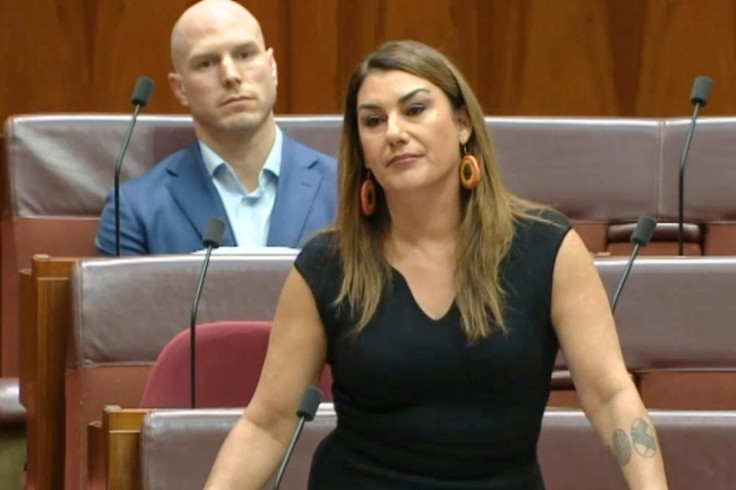Sexual Assault Claims Cast Light On Australia's Macho Politics

Australia has allowed a sexist culture to fester inside its parliament, a prominent lawmaker has told AFP, as sexual assault allegations again ring through the country's halls of power.
The macho nature of Australian politics was highlighted in late 2021 when a scathing review found Parliament House rife with heavy drinking, bullying, and sexual harassment.
Less than two years later the country is again wrestling with the behaviour of its political class, after sexual assault claims were levelled at a conservative senator.
Independent politician Zali Steggall said women had experienced "horrific" levels of harassment and sexual assault while working inside parliament.
"The culture of the Australian parliament has been exposed in the last few years, and still has a long way to go," she told AFP.
"It has been an overwhelmingly patriarchal environment."
Few initially took notice as Lidia Thorpe stood to address the Senate last Wednesday evening, but her interjection would rapidly grip the nation.
Thorpe accused fellow senator David Van of sexually assaulting her in 2021, and would later describe how she had been propositioned by "powerful men".
By Thursday, conservative senator Amanda Stoker had also accused Van of groping her during a party in Parliament House.
Van, a former PR consultant, has vigorously protested his innocence, describing the allegations as "scandalous", "concocted" and "utterly untrue".
Australia's two major parties spent last week slinging mud at each other over the handling of a rape allegation made by former political staffer Brittany Higgins in 2021.
Although the case ended in a mistrial in October last year, the claims have resurfaced in recent weeks after Higgins' private text messages were leaked to journalists.
Steggall, who won a bronze medal for slalom skiing at the 1998 Winter Olympics, said it was "harmful and destructive" to see rape allegations weaponised for political gain.
"It was a very disappointing, distressing week in parliament," she said. "It did set us back in terms of the kind of workplace it is."
Political scientist Marian Sawer said the level of sexual harassment in Australia's parliament was similar to that reported in the United Kingdom and New Zealand, fellow Westminster-style democracies.
Sawer told AFP the combative nature of politics in those countries possibly normalised "aggressive conduct".
A sweeping review published in November 2021 found that one in three people working inside Australia's Parliament House had experienced some form of sexual harassment.
The same review, by the Australian Human Rights Commission, also found a laddish culture permeated the building, fuelled by frequent bouts of heavy drinking.
"I do often describe Parliament House as the most sexist place I've worked," one respondent told the authors.
Gender politics researcher Blair Williams said fixing the sexist culture was never going to be easy.
"It's hard to fix a huge problem, a longstanding problem, with one or two fixes," she told AFP.
"We are still hearing these accounts of sexual harassment and assault happening in the halls of power," she added.
Williams said Australia's parliament was badly behind the times, 30 years after a similar "reckoning" remoulded the country's business sector.
Australia has only ever had one woman prime minister, Julia Gillard, who was relentlessly bombarded with sexist jibes while leading the country between 2010 and 2013.
Although Australia has increased the number of women sitting in parliament, it has done so far slower than other countries.
In 1999 Australia had the 15th highest proportion of women in its parliament, according to rankings compiled by the Inter-Parliamentary Union.
By 2022 it had slipped down the table to 57th place.
Williams said this was an easy place to start.
"I feel that if there were more women in parliament, perhaps the culture would be a bit better."
© Copyright AFP 2024. All rights reserved.





















